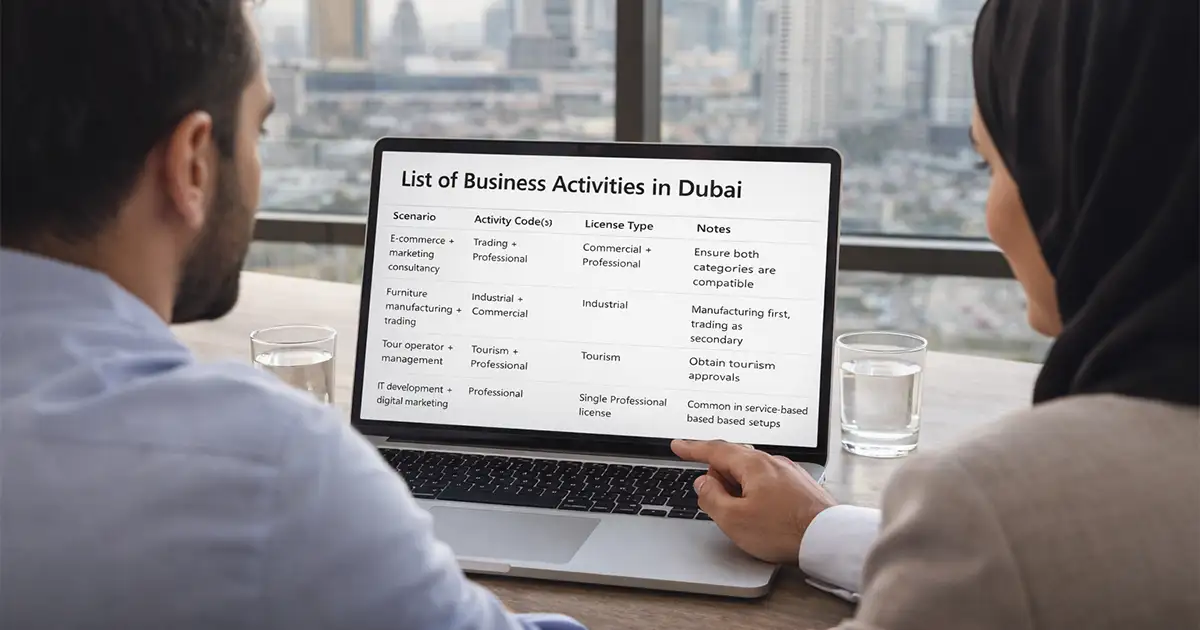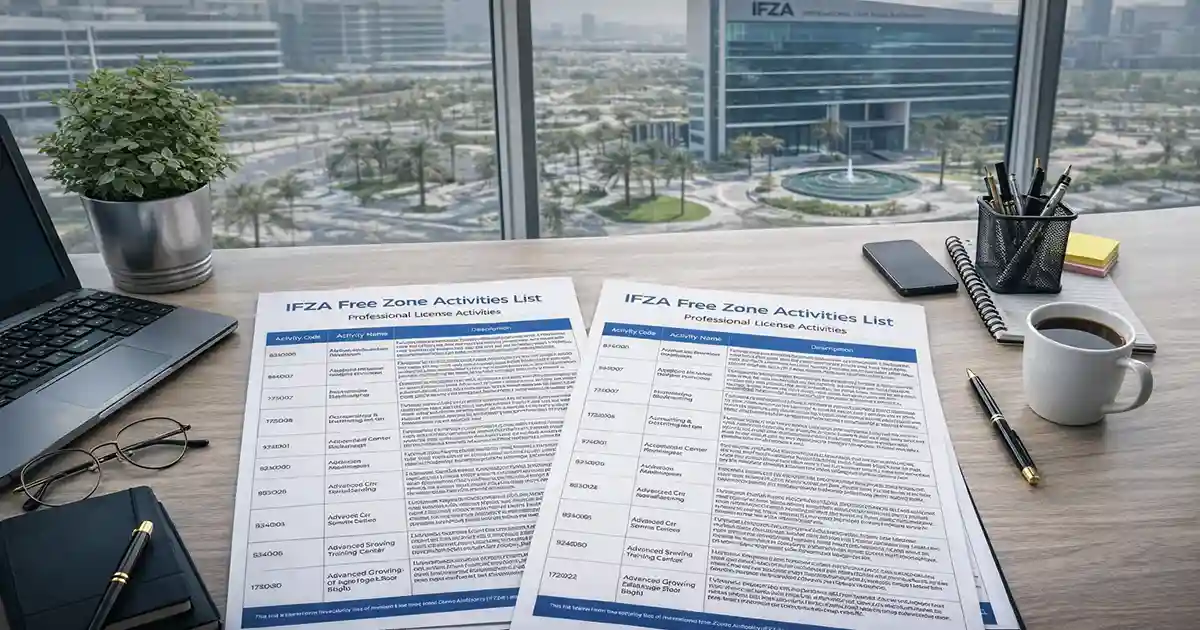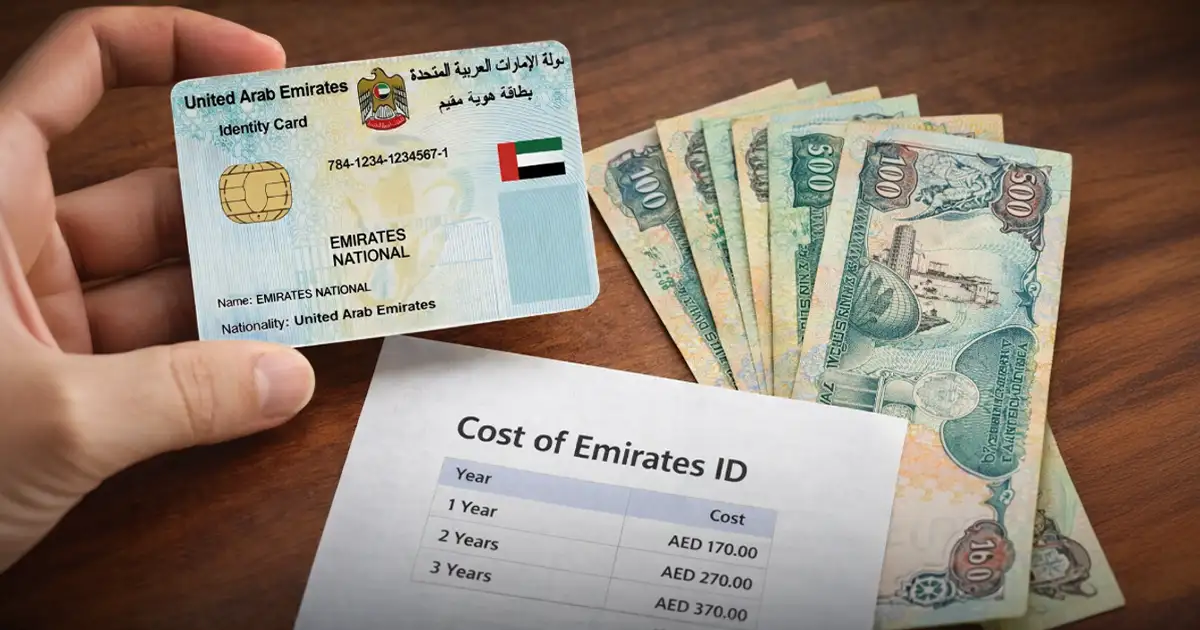Setting up a business in Dubai involves more than just the initial capital. Additional costs vary based on the business setup type. Understanding these expenses helps in accurate budgeting and financial planning.
| Expense Category | Mainland | Free Zone | Offshore |
|---|
| License Fee |
AED 12,000–30,000 |
AED 9,000–50,000 |
AED 12,000–20,000 |
| Office Space |
AED 10,000–25,000/year |
AED 3,000–25,000/year |
Not required |
| Investor Visa |
AED 3,000–5,000 |
AED 3,000–5,000 |
Not applicable |
| Employee Visa |
AED 2,500–4,000 |
AED 2,500–4,000 |
Not applicable |
| Professional Services |
AED 12,000–25,000 |
AED 5,000–15,000 |
Not required |
| Trade Name Reservation |
AED 500–2,000 |
AED 500–2,000 |
AED 500–1,500 |
| Initial Approval Fee |
AED 500–3,000 |
AED 500–3,000 |
AED 500–1,500 |
| Legal and Notarization Fee |
AED 1,000–5,000 |
AED 1,000–5,000 |
AED 1,000–3,000 |
| Visa Medical and Emirates ID |
AED 500–1,000 per person |
AED 500–1,000 per person |
Not applicable |
Get a detailed cost estimate for your Dubai business. We provide transparent breakdowns to help you budget effectively.
Note: Visa prices vary depending on the free zone and package (some free zones bundle visas in packages).
Minimum Investment for Popular Business Types in Dubai
Consultancy firms, e-commerce startups, and trading companies differ in capital needs. Free Zones are ideal for business ideas to start in Dubai with low initial investments, flexible licenses, and shared office packages. Choosing the right business type and setup helps optimize investment and operational efficiency.
Here’s a breakdown of popular business types:
1. Consultancy Firm
Consultancy firms usually require low investment. Minimal share capital is often sufficient. The main costs include the trade license and office space or a Flexi desk. Free Zones are popular for service-based consultancies due to lower costs and flexible office options.
Investment Range: AED 15,000 – AED 30,000
Read more: How to Start a Consulting Business in Dubai?
2. E-Commerce Business
E-commerce businesses offer flexible setup options, especially in Free Zones. Costs depend on the license type, logistics, and warehousing needs. Many e-commerce startups start with minimal share capital and scale as operations grow.
Investment Range: AED 5,750 – AED 15,000
3. Trading Company
Trading companies often need higher share capital, depending on the type of goods. In addition to the license, costs may include warehouse or storage facilities. Mainland setup is preferred for local trading activities.
Investment Range: AED 15,000 – AED 50,000
4. Manufacturing Business
Manufacturing businesses require high investment due to equipment, facilities, and regulatory approvals. Capital covers machinery, production space, and special permits from authorities. Free Zones with industrial facilities are often ideal for such businesses.
Investment Range: AED 200,000 – AED 1,000,000+
5. Hospitality and Restaurants
Restaurants, cafes, and hotels need medium to high investment. Main costs include trade license, commercial space, kitchen equipment, and staff visas. Food and beverage licenses and health approvals also add to expenses.
Investment Range: AED 500,000 – AED 1,500,000
6. Health and Wellness Services
Clinics, gyms, and wellness centers require moderate investment. Key costs include licenses, medical or fitness equipment, and office/clinic space. Free Zones like Dubai Healthcare City are popular for medical and wellness setups.
Investment Range: AED 200,000 – AED 1,000,000+
7. IT and Tech Startups
Tech startups often start with low to moderate investment. Main costs include trade license, office or co-working space, software, and IT infrastructure. Free Zones like Dubai Internet City offer incentives for tech businesses.
Investment Range: AED 20,000 – AED 40,000
8. Retail Stores
Retail shops require a medium investment. Capital goes into license, shop space, inventory, and staff. Mainland setup is usually preferred for local trading, while Free Zones suit online or specialty retail stores.
Investment Range: AED 22,000 – AED 50,000
Explore investment ranges for your business type. We help startups, e-commerce ventures, and trading companies launch confidently.
Read more: 15 Profitable Business Ideas to Start in Dubai





